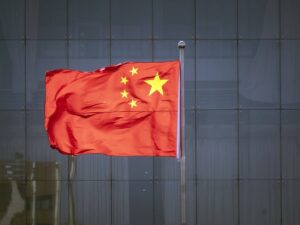
As Ukraine continues to navigate the challenges of war, large corporations are playing a pivotal role in maintaining its digital sovereignty. This assistance is not merely technical; it is reshaping power dynamics between nation-states and private enterprises, according to recent research.
Corporate Influence on National Security
The involvement of corporations such as Microsoft and Google has proven crucial for Ukraine’s cybersecurity efforts. These companies are providing technology that fortifies the country’s digital infrastructure against cyber threats, which have escalated during the ongoing conflict with Russia.
In a detailed analysis published by the Center for Strategic and International Studies on September 15, 2023, researchers highlighted how corporate entities are increasingly acting as political players. Their support extends beyond mere provision of services; they are redefining how states interact with non-state actors in the realm of security and governance.
This shift has significant implications for international relations, particularly as governments rely on technology firms to protect critical national interests. By stepping in to fill gaps left by traditional state mechanisms, these corporations are changing the landscape of power in a way that complicates the sovereignty of nations.
The New Landscape of Digital Governance
As foreign investments flow into Ukraine’s technology sector, the relationship between the state and technology companies becomes more intertwined. The research indicates that the growing dependency on corporate support could lead to a shift in priorities, as these companies may exert influence over governmental policies.
For instance, in 2022, Ukraine’s government implemented a series of reforms aimed at enhancing its digital economy. These reforms were supported by companies that see potential in a stable and technologically advanced Ukraine. With investments exceeding $1 billion in the digital sector, the stakes are high for both the corporations and the Ukrainian government.
Moreover, this collaboration raises questions about accountability and governance. As private companies gain more influence, the need for clear regulatory frameworks becomes increasingly urgent. Balancing corporate interests with national priorities is a challenge that many governments, not just Ukraine, will need to address moving forward.
As the war in Ukraine continues, the implications of this evolving dynamic are profound. The reliance on corporate entities for national security can be a double-edged sword. While it offers immediate benefits in terms of resources and expertise, it also places significant power in the hands of private companies, which may not always align with the public interest.
In conclusion, the role of corporations in Ukraine’s digital sovereignty exemplifies a transformative shift in the power dynamics between states and private businesses. This new landscape demands careful navigation to ensure that the benefits of technological advancement do not come at the expense of national governance and independence.







